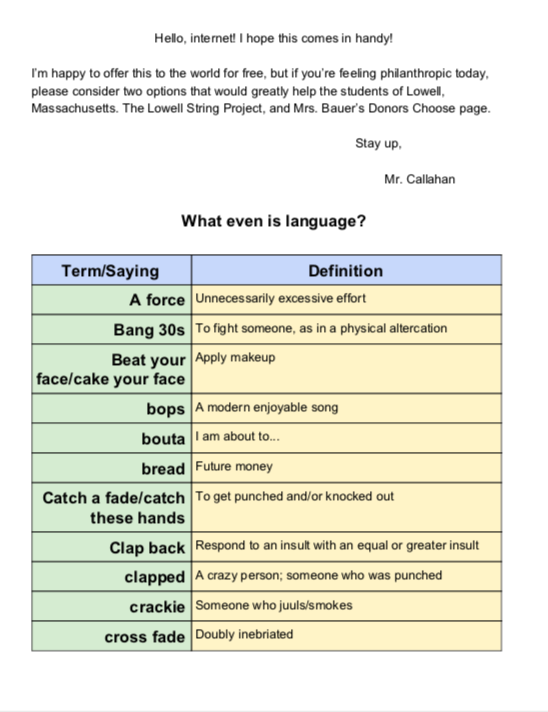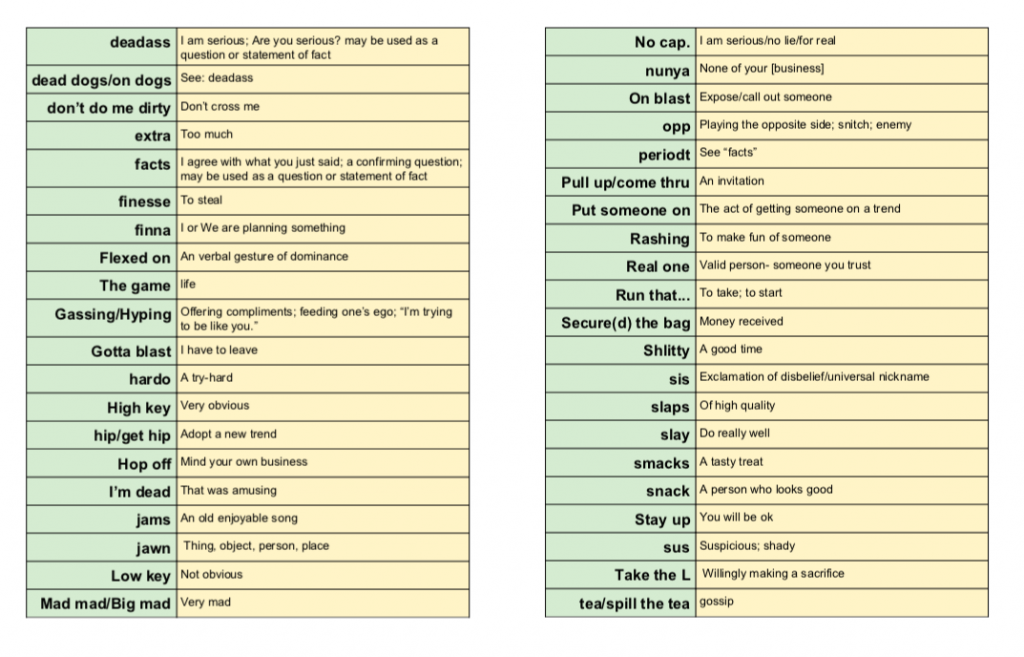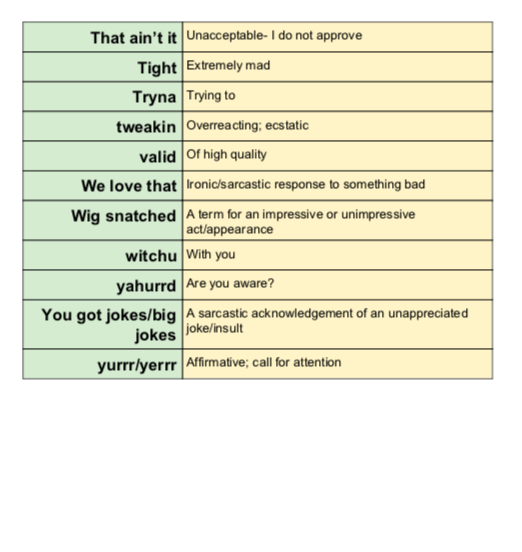
Yeet.
You may have used this when throwing a bottle away from you or maybe wanted to express a feeling of relief that the seagull ate your friend’s ice cream, and not yours. Or the expression “Deez Nuts. Ha! Got ’im” when you tricked someone and you feel like you got them real good. Along with lol, big dick energy, mood, or a Vine favourite of mine: ‘Look at all those chickens‘, new words and expressions have popped up in our language over the past years, allowing for the unveiling and expressing of what I call ‘global emotions’.
Under ‘global emotions’ I understand the spectrum of humans’ felt and expressed emotions given the historical circumstances of development in technology and cultural wealth around the globe. The rise of these new words comes at no surprise for those who engage in the evergrowing world of digital communication technologies. In combination with the Internet connecting even the remotest corners of the world together, digitalization is bound to affect how we interact with each other, bringing many cultural words and expression into the global dialogue.
To yeet or to be yeeted?
When using social media, a distinct culture of interaction between people/brands/other entities becomes visible. These interactions often take the form of comments, tags, tweets, posts, hashtags, etc. A single reply tweet saying “Mood” expresses a feeling of relatability to the enjoyment a friend has just partaken in. For example:
“I just had the best fricking tacos, man”
“Mood.”
This single word sentence format is easily replicable on a day-to-day basis and has found its way into various form of youth talk. Many of these expressions present alternative ways to convey emotions to a person of a similar digital cultural background. Although young and not fully integrated into everyday life, these type of virtual interaction have gained a considerable grip in everyday dialogue, at least for younger generations.
The generational difference in language becomes clear when watching TV and News Anchor try to ‘decipher’ the online language of the ‘youth’. This comes to no wonder, as for the pre-80s/90s generations the Internet was not such a present forum of consultation in their lives. However, no one should feel bad about that because all of us are highly influenced by the cultural environment we were brought up in, so we all have a distinct historical vocabulary of emotional expressions we can use to bond with other. This is nevertheless NOT an excuse to not update discriminatory language, even if it was seen as appropriate in a different time context (we’re not in that time context anymore, so just let it go and adapt). The Internet thus becomes a platform where the world comes together and interacts in its context-specific digital language.
In Conclusion (cuz I’m uncertain if blogposts have conclusions)
Different Generations have different words/expressions to convey their feelings in their own context-dependent language. They experience different events at different times with differing priorities in their cultural environment towards those events, such as the presence of the Internet in our everyday lives. Younger Generations have not had more time than others to be influenced by the Digital, but it was its ever-growing importance during the time we grew up that allowed for the Internet to become a big enough authority in our behavioural development. In it, we are free to explore new subforms of global digital culture, such as language. The interconnectedness of our species through digitalization will not end anytime soon, and the Internet will continue to influence the behaviour in our daily lives.
Nevertheless, I feel that it is necessary to say that the dominant digital culture comes from the US, thus most popular culture on the Internet can be seen as very Western-centered. However, the internet is full of culture from all over the world, expressing emotions we all can relate to in their own specific way. It becomes thus essential to give all regions the access and opportunity to the Digital World in future development aid. The Internet has nobler purposes to fulfil than to bring meme-language to countries plagued with civil war, but my essential argument boils down to: Everyone has the right to information, and the internet is the greatest source of it and should be shared with all so it can benefit all, Developing a whole new range of social interaction modules is but a small thing the Digital has to offer.
What should I take from this?
Great question.
Bonus
Attached is a document James Callahan, a sociology teacher at Lowell High School in Massachusetts, made as he was trying to understand his students’ ‘lingo’.





This was really interesting to read because I also express myself like this and I could relate to many of the observations you made. I find it very interesting that language is changing faster than ever, with slang becoming universal in the digital world. If you get to know someone and they speak like you, you feel a little closer to them for some reason. I think it’s interesting that as huge as the WWW is, somehow it brings the youth together in some ways.
Digital culture’s a weird and wonderful world, and all the lingo could fill up a bingo card for anyone trying to be down with the kids. More seriously though, I think that you make an interesting point re. how most of what makes it into popular culture is Western-based, and how this permeates the circles (or echo chambers) you cultivate for yourself online.
TL;DR: Word, mate. Word.
Thoroughly enjoyed this piece & the way you incorporated the lingo so fluidly & sophisticatedly. GG. The concept of ‘Global Emotions’ is particularly interesting to me, because when you have a generation that has almost been raised on the internet, you have a mass community of young people who have grown accustomed to the ability of interacting with people across the world & are very well-versed in this (albeit Westernized) world of pop culture. This facilitates these forms of ‘global’ satirical social commentary of self expression as the memes or internet lexicon unify many across the globe.